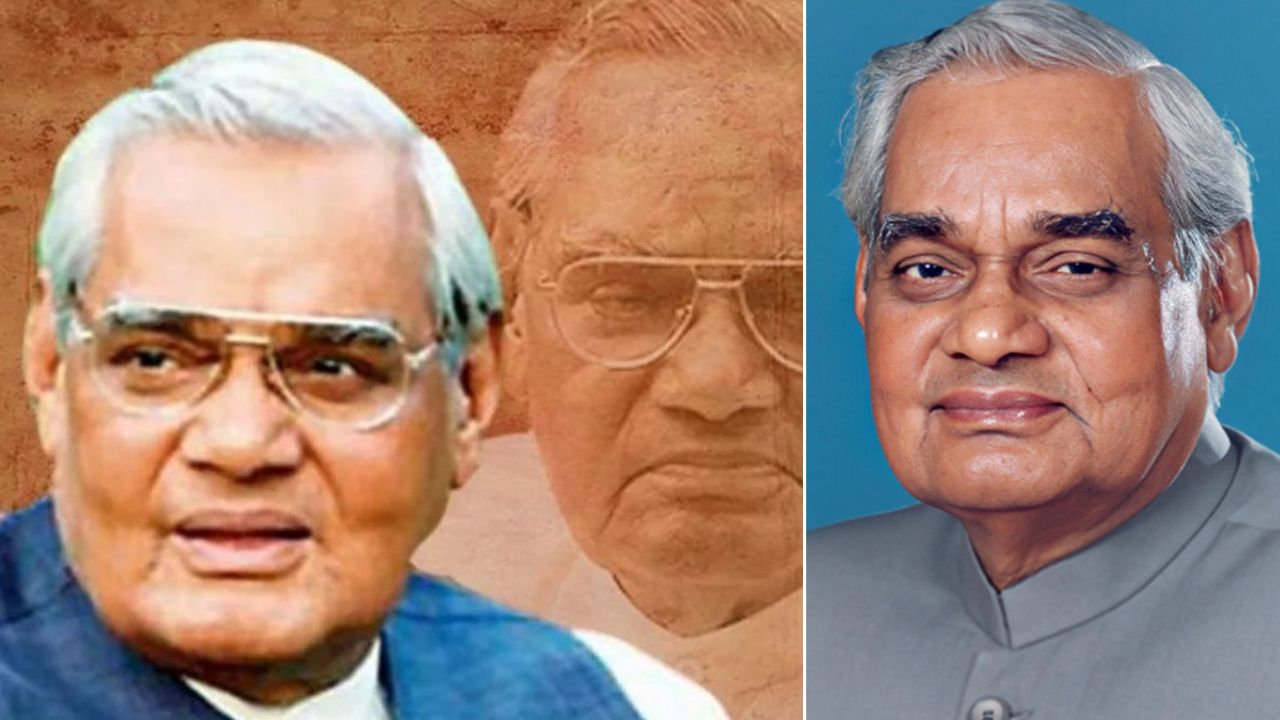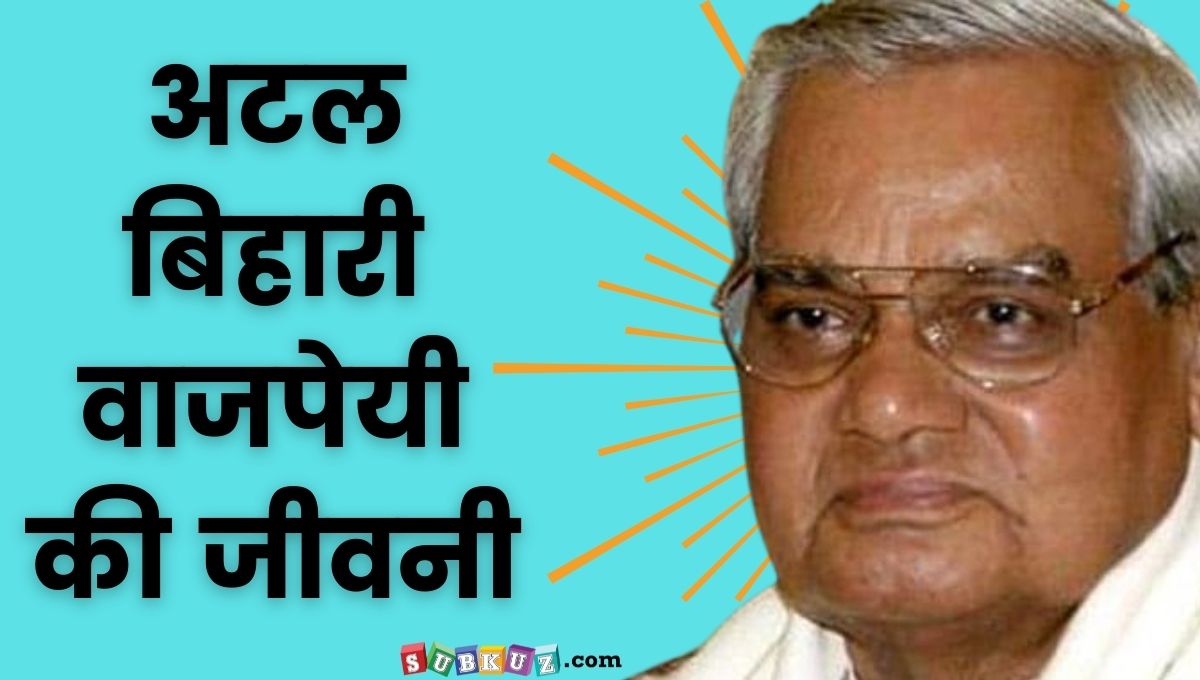Atal Bihari Vajpayee: A Life in Service
Atal Bihari Vajpayee was a poet, thinker, statesman, and a man of diverse talents. The 10th Prime Minister of India, Atal Ji, was born on December 25, 1924, in Gwalior district of Madhya Pradesh, a day celebrated as his birthday. His mother's name was Krishna Devi and his father was Krishna Bihari Vajpayee. His father was a school teacher and poet, and his mother a devoted homemaker. Atal Ji remained unmarried throughout his life, dedicating his life to the service of the nation. He adopted two daughters, Namita and Nandita.
Educational Life
From a young age, Atal Ji was introspective and highly gifted. His early education took place at Saraswati Shiksha Mandir, Gorakhi, Bada. He earned his BA degree from Victoria College (now known as Lakshmibai College) and went on to complete his MA in Economics from Dayanand Anglo Vedic College, Kanpur. He subsequently enrolled in law but did not pursue it further.
He joined the RSS in 1939 and became a full-time RSS pracharak in 1947.
Political Career
After embarking on his political journey as a freedom fighter, Atal Ji contested his first Lok Sabha election in 1955, but without success. In 1957, he won the election from Balrampur (Gonda district, UP) as a Jan Sangh candidate.
Tenure as Prime Minister
Atal Bihari Vajpayee served as Prime Minister of India three times: from May 16, 1996, to June 1, 1996; from March 19, 1998, to October 13, 1999; and from October 13, 1999, to May 21, 2004. He became the first non-Congress Prime Minister to complete a five-year term.

Other Achievements in Politics
He served as a member of the Rajya Sabha twice and the Lok Sabha nine times.
He was elected as a Member of Parliament from four different states (UP, MP, Gujarat, and Delhi).
He served as the President of the Bharatiya Jan Sangh from 1968 to 1973.
From 1977 to 1979, he served as the Foreign Minister in Morarji Desai's government.
On April 6, 1980, he played a key role in the formation of the Bharatiya Janata Party alongside Lal Krishna Advani and Bhairon Singh Shekhawat.
The Pokhran nuclear tests in 1998 were a significant achievement during his tenure.
The Sarva Shiksha Abhiyan was launched in 2001.
He invited Pervez Musharraf to India in 2001, initiating a bus service between the two countries.
Awards and Honours
He was awarded the Padma Vibhushan in 1992.
He received the Lokmanya Tilak Award and the Pandit Govind Ballabh Pant Award in 1994.
He received the "Best Parliamentarian Award" in 1994.
He was conferred the Bharat Ratna in 2014.
The Indian government declared December 25th as Good Governance Day.
Death
Atal Bihari Vajpayee passed away on August 16, 2018, at the All India Institute of Medical Sciences (AIIMS) in Delhi. His adopted daughter, Namita Kaul Bhattacharjee, performed the cremation rites according to Hindu tradition on August 17, 2018. His ashes were immersed in the Ganga River at Har Ki Pauri and other prominent rivers of India. His memorial was built near Raj Ghat in Shanti Van.
Key Characteristics of Atal Ji
Broad-minded approach: Atal Bihari Vajpayee avoided being confined to any particular ideology. His tenure saw a proactive approach in dialogue, ranging from Kashmir to Pakistan.
Bringing diverse views together: He was renowned for uniting people with opposing viewpoints, forming coalition governments.
Eloquent orator: He was a master of the spoken word, and even those who opposed him were impressed by his oratory skills and persuasive arguments.
Conclusion
Atal Bihari Vajpayee's life stands as a testament to patriotism, dedication, and exemplary leadership. His contributions and service will forever be remembered.
```








